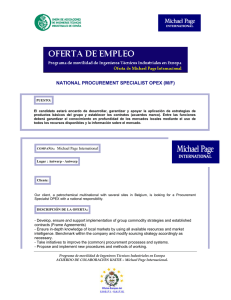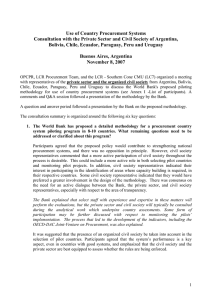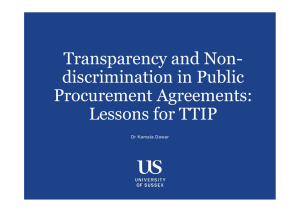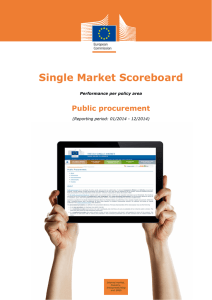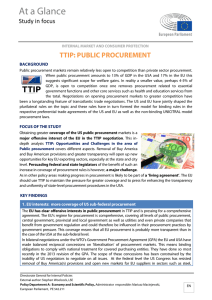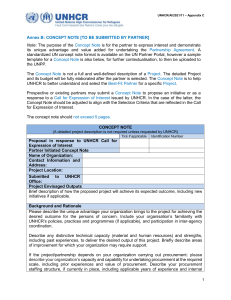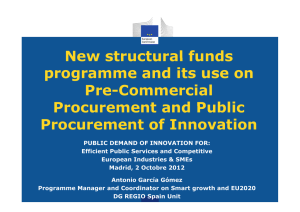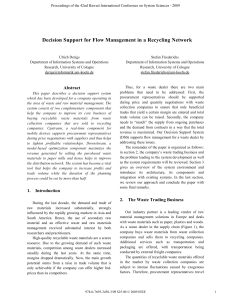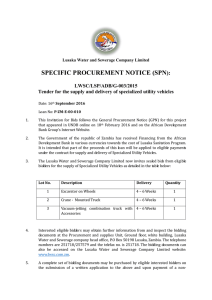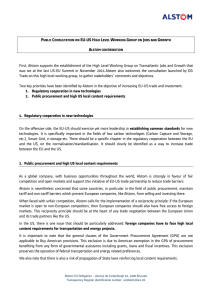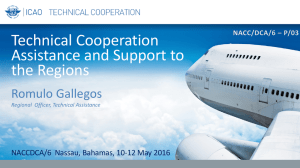European Commission Takes Action to Open Up
Anuncio
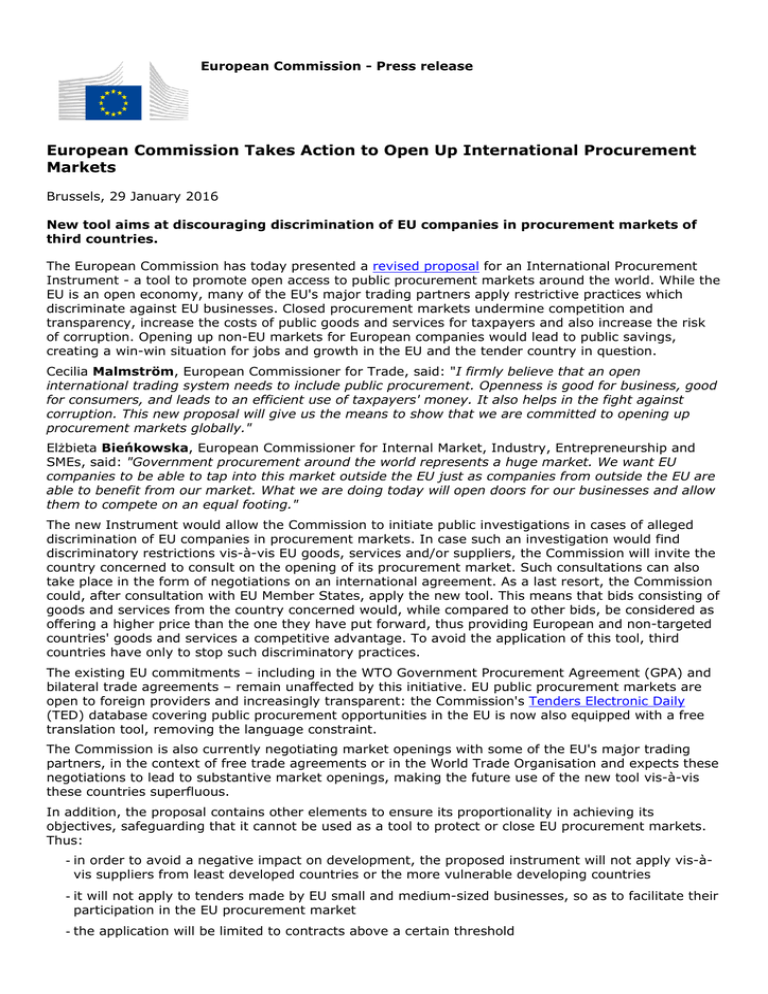
European Commission - Press release European Commission Takes Action to Open Up International Procurement Markets Brussels, 29 January 2016 New tool aims at discouraging discrimination of EU companies in procurement markets of third countries. The European Commission has today presented a revised proposal for an International Procurement Instrument - a tool to promote open access to public procurement markets around the world. While the EU is an open economy, many of the EU's major trading partners apply restrictive practices which discriminate against EU businesses. Closed procurement markets undermine competition and transparency, increase the costs of public goods and services for taxpayers and also increase the risk of corruption. Opening up non-EU markets for European companies would lead to public savings, creating a win-win situation for jobs and growth in the EU and the tender country in question. Cecilia Malmström, European Commissioner for Trade, said: "I firmly believe that an open international trading system needs to include public procurement. Openness is good for business, good for consumers, and leads to an efficient use of taxpayers' money. It also helps in the fight against corruption. This new proposal will give us the means to show that we are committed to opening up procurement markets globally." Elżbieta Bieńkowska, European Commissioner for Internal Market, Industry, Entrepreneurship and SMEs, said: "Government procurement around the world represents a huge market. We want EU companies to be able to tap into this market outside the EU just as companies from outside the EU are able to benefit from our market. What we are doing today will open doors for our businesses and allow them to compete on an equal footing." The new Instrument would allow the Commission to initiate public investigations in cases of alleged discrimination of EU companies in procurement markets. In case such an investigation would find discriminatory restrictions vis-à-vis EU goods, services and/or suppliers, the Commission will invite the country concerned to consult on the opening of its procurement market. Such consultations can also take place in the form of negotiations on an international agreement. As a last resort, the Commission could, after consultation with EU Member States, apply the new tool. This means that bids consisting of goods and services from the country concerned would, while compared to other bids, be considered as offering a higher price than the one they have put forward, thus providing European and non-targeted countries' goods and services a competitive advantage. To avoid the application of this tool, third countries have only to stop such discriminatory practices. The existing EU commitments – including in the WTO Government Procurement Agreement (GPA) and bilateral trade agreements – remain unaffected by this initiative. EU public procurement markets are open to foreign providers and increasingly transparent: the Commission's Tenders Electronic Daily (TED) database covering public procurement opportunities in the EU is now also equipped with a free translation tool, removing the language constraint. The Commission is also currently negotiating market openings with some of the EU's major trading partners, in the context of free trade agreements or in the World Trade Organisation and expects these negotiations to lead to substantive market openings, making the future use of the new tool vis-à-vis these countries superfluous. In addition, the proposal contains other elements to ensure its proportionality in achieving its objectives, safeguarding that it cannot be used as a tool to protect or close EU procurement markets. Thus: - in order to avoid a negative impact on development, the proposed instrument will not apply vis-àvis suppliers from least developed countries or the more vulnerable developing countries - it will not apply to tenders made by EU small and medium-sized businesses, so as to facilitate their participation in the EU procurement market - the application will be limited to contracts above a certain threshold - the scope of possible action will be targeted to what is deemed necessary: the application can be limited to certain suppliers from the third country concerned, and its implementation to a select group of contracting authorities in each EU Member State. Background EU companies are often subject to discrimination when selling their products and services to public institutions in other countries. Such restrictions affect competitive EU sectors such as construction, public transport, medical devices, power generation and pharmaceuticals. Only a quarter of the world's annual procurement market is open to international competition. The 2015 Commission's trade strategy highlights the need for an effective policy that tackles new economic realities and points at the need to ensure a level playing field in market access also for procurement. The strategy also calls for more efforts to combat corrupt practices. Corruption is a world-wide problem and particularly relevant in the case of public procurement. The EU’s efforts to overcome the existing trade barriers are twofold. On the one hand, the EU includes comprehensive procurement chapters into the free trade agreements that it concludes bilaterally with its partners. Also, it negotiates with countries willing to join the WTO Government Procurement Agreement (GPA) – for instance China and Australia – aiming at bringing more countries to the agreement and make it eventually apply to all WTO members. The Commission, in March of 2012, made its first proposal to create incentives for EU trading partners to opt for more openness in public procurement. Today's proposal brings improvements to the initial Commission initiative, by allowing the EU to take proportionate and more targeted action – providing leverage in negotiations, without closing EU markets or adding any unreasonable burden for contracting authorities. IP/16/178 Press contacts: Daniel ROSARIO (+ 32 2 295 61 85) Lucia CAUDET (+32 2 295 61 82) Joseph WALDSTEIN (+ 32 2 29 56184) Heli PIETILA (+32 2 2964950) General public inquiries: Europe Direct by phone 00 800 67 89 10 11 or by email
